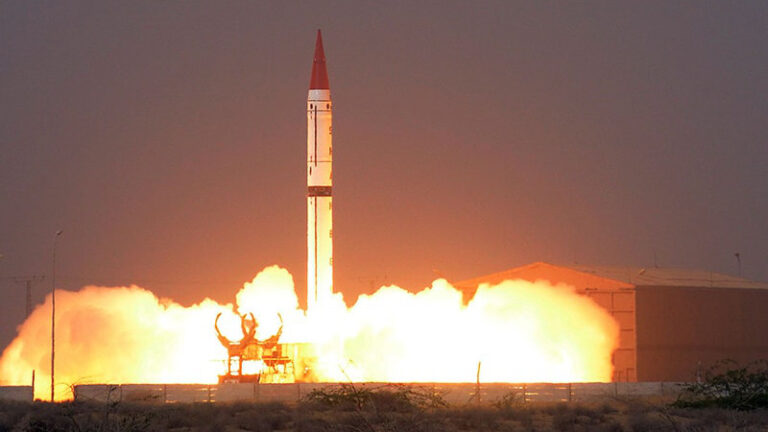On May 28, Pakistan marks a pivotal moment in its history, commemorating a milestone that resonates across the country’s strategic landscape. Often referred to as “Greatness Day,” this momentous occasion signifies Pakistan’s joining the ranks of nuclear-powered nations. More than just an anniversary, Yom-e-Takbir encapsulates Pakistan’s strategic evolution, scientific prowess, and diplomatic resilience. In this article, we explore the multifaceted dimensions of this milestone, delving into its historical context, strategic impact, and enduring legacy.
This historic event had its roots in the geopolitical tensions of the late 20th century, particularly the nuclear standoff between Pakistan and India. In May 1998, a series of nuclear tests by India shocked the entire region and prompted a decisive response from Pakistan. Faced with the frightening prospect of a neighboring nuclear capability, Pakistan’s leadership, led by Prime Minister Nawaz Sharif, made the momentous decision to conduct a nuclear test of its own, changing the strategic calculus in South Asia.
The results of Pakistan’s nuclear tests on May 28 have brought about a paradigm shift in the regional balance of power. Pakistan’s acquisition of nuclear weapons has served as a powerful deterrent against external aggression and enhanced the country’s security and sovereignty. The success of these tests has underscored Pakistan’s resolve to safeguard its national interests and defend itself against all potential threats.
Moreover, this milestone highlighted the importance of nuclear deterrence in preventing escalation and maintaining regional stability. The existence of a credible nuclear capability has served as a key factor in averting a major conflict between Pakistan and India, underscoring the crucial role of nuclear weapons in strategic calculations.
Diplomatic Influence
Following Pakistan’s nuclear tests, the international community was forced to adapt to the changing situation in South Asia. Despite facing international condemnation and sanctions, Pakistan remained steadfast in its resolve to safeguard its sovereignty and defend its strategic interests. The success of these tests strengthened Pakistan’s diplomatic position and enhanced its credibility as a responsible nuclear power.
Moreover, this milestone underscores the imperative of nuclear non-proliferation and arms control efforts on the global stage. Pakistan has consistently advocated for a comprehensive and non-discriminatory approach to nuclear disarmament and stresses the need for an impartial security regime that addresses the legitimate security concerns of all countries.
This historic event holds a special place in the Pakistani collective consciousness and is a symbol of national pride, resilience and scientific achievement. The successful nuclear test energized the nation and fostered a sense of unity and solidarity in the face of external pressures. It instilled confidence that Pakistan is a sovereign and independent nation capable of overcoming difficult challenges.
This milestone inspired future generations of Pakistan to pursue excellence in science, technology and defense. It ignited a spirit of innovation and ingenuity and fueled Pakistan’s quest for self-reliance and technological advancement. The legacy of this event continues to resonate across generations, reminding us of Pakistan’s ability to carve its own destiny and shape its future.
Yom-e-Takbir is a testament to Pakistan’s strategic acumen, scientific achievements and diplomatic tenacity. It was a defining moment in the nation’s history, marking its emergence as a responsible nuclear power and a key player in regional and global affairs. Pakistan commemorates this milestone every year to reaffirm its commitment to peace, stability and progress, while remaining vigilant in safeguarding its national interests. May the spirit of this occasion continue to lead Pakistan towards a future marked by peace, prosperity and security.

